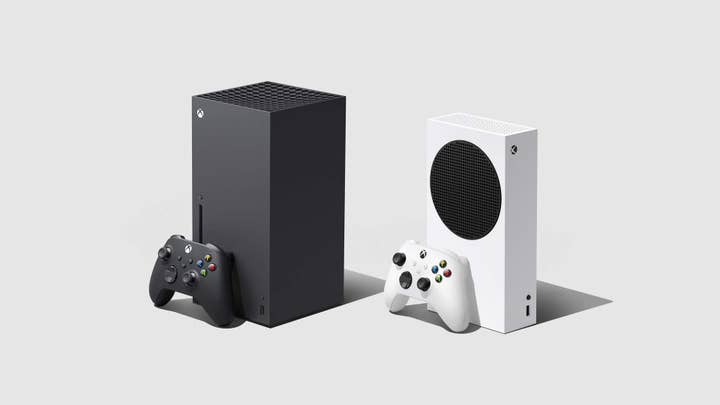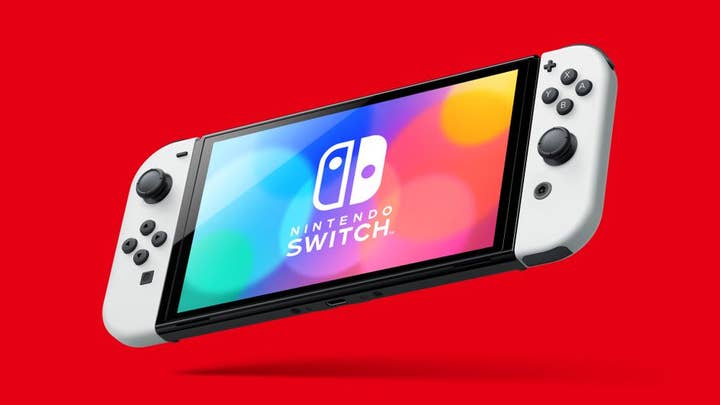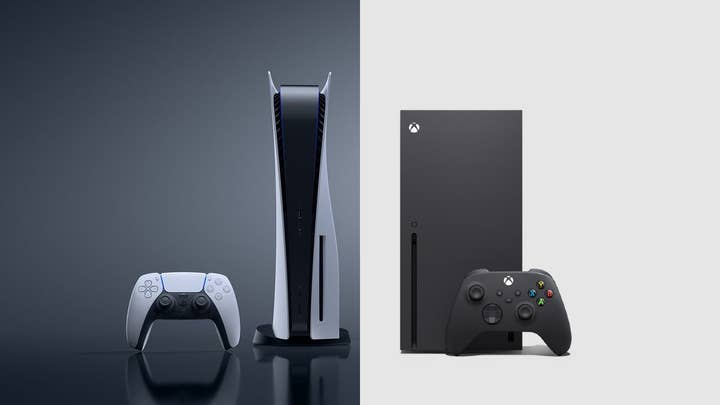The idea of regularly-updated console hardware seems dead in the water | Opinion
This generation was meant to see consoles become an evolving platform with regular upgrades akin to smartphones - has the idea been quietly abandoned?
Not-E3 Week is in full swing once more. This week of events organised by publishers and platform holders is so similar in terms of reach and effectiveness to an actual E3 week that the ESA's insistence that its flagship event will return any year now is starting to sound more and more like a Monty Python sketch; this trade show isn't dead, it's just sleeping.
E3's actual show floor had been increasingly hollowed out for many years by the shift in focus to publisher and platform-holder events held in the days before the show; its absence in the past few years has barely caused a tremor in the functioning of the industry's calendar and news cycles. So it is that we can look to Not-E3 Week and, despite the lack of an actual show, draw conclusions and comparisons with previous years relatively confidently, albeit tempered by the knowledge that some announcements will be deliberately held back from this week in order to ensure their thunder remains un-stolen.
I'm not sure how ready the industry or its consumers ever were for annually iterated console hardware, but the idea is clearly on the back-burner for the time being
There are several conclusions you might draw from this week's Not-E3, but one observation you might have found yourself making in passing is, "Huh, no hardware." Not even a sniff of hardware, in fact; the closest any company got to talking about a significant hardware release so far was Sony revealing some of the games line-up for PSVR2, but the headset itself or any details about its launch were a no-show. Updated consoles, though? Any sign of an improvement on the Switch, or a mid-cycle refresh for the PS5 or Xbox Series systems? Absolutely nothing. (Granted, Xbox's showing isn't until Sunday)
I wouldn't be surprised if a Switch refresh still turns up at some point in the next six months, given how far into its cycle the system is -- but for the other consoles, you'd be forgiven for rolling your eyes at the very notion of a hardware update. After all, we're less than two years into their lifecycles. Not only that, supply constraints mean that many, many consumers are still frustrated in their attempts to get their hands on one of the existing systems -- why in the name of any deity you care to invoke would we be talking about introducing updated hardware, when demand for the existing hardware can't even be met right now?
All reasonable points, and I fully agree. However, it's worth rewinding a little bit to the months before the new consoles launched and thinking about the rhetoric about what this generation was going to be: the last generation of consoles, the inflection point at which generational leaps ended and consoles instead became steadily evolving, inherently backwards compatible devices.
The core of this idea, which was pushed hard by Microsoft and nodded to slightly more reluctantly by Sony, was that we were going to see console hardware move to an upgrade cycle more comparable to other consumer electronics devices like laptops, tablets, or mobile phones; a steady tick-tock of updates that would keep moving cutting-edge performance forwards while still keeping a long tail of older models within the envelope of 'current-gen,' so you'd never need to be using the latest-and-greatest console just in order to play the latest-and-greatest games.

There's more to it than that, of course, including the promise of a persistent game library that was compatible up and down across the various hardware iterations, with your older games just automatically playing better when you moved up to newer hardware. Some aspects of this vision were actually never made clear, such as the thorny question of how sunsetting old consoles that finally fell out of that 'current gen' envelope would work. From the perspective of the console-buying public, though, this shift in the tempo and nature of hardware upgrades was the core of the idea. Microsoft's 'Series' naming for S and X wasn't just a catchy title; it spoke to a genuine desire that these machines would be the start of a long-running series quite unlike the console platforms that came before.
The reasons why platform holders aren't rushing to put new devices onto the market in 2022 are fairly obvious and many of them are outside those companies' control, but it's still worth noting the passing, or at the very least the pausing, of this iterative vision for console systems. We're approaching two years into this console generation and there's not been a single change to the line-up of console models on sale. This generation is every bit as static, in hardware terms, as the last one, which saw just one mid-generation spec bump for the major consoles.
I don't doubt there's a 'mid-generation' iteration being worked on by both Microsoft and Sony; I do wonder what the actual business case is, though
In fact, there's every possibility that the current generation will actually end up being even more static, since the market pressure that led to the launch of updated PS4 Pro and Xbox One X models (specifically, the rapid proliferation of 4K televisions, which the original PS4 and Xbox One couldn't handle very well) doesn't have an equivalent in this generation, with 8K far less likely to be a meaningful factor in the coming years. That would mean we're actually stepping backwards from the vision of the ever-evolving console hardware platform, far from doing away with the supposedly outdated generational leap.
So, certainly, it's not even been fully two years yet since launch -- though it's almost three years since hardware details of both new consoles were announced and locked down; remember that very odd gap of months where we knew loads of technical information about the new devices, but there was total silence on crucial information like pricing, availability, and software?
Moreover, it's been a weird two years. There's a global semiconductor shortage, inflation is hollowing out people's disposable incomes, currency exchange rates that have huge impacts on electronics manufacturing chains are whipping around like a washing line in a typhoon, and that's not to mention the pandemic that killed millions and disrupted livelihoods and businesses all around the globe. It's not been an ideal time to transition a decades-old, multi-billion-dollar industry to a whole new business model; in such circumstances, the best-laid plans are going to face being shelved, or delayed, or just generally messed up.
We can reasonably ask, though, whether that disruption is temporary or permanent. This may not be an ideal time to start talking about new hardware, let alone launching it, but a glance at the rest of the consumer electronics industry confirms that other sectors built around regular iterations and upgrades are continuing to tick-tock away. Mobile phones, laptops, televisions, tablets -- these devices all function on a system of iterative annual updates that allows consumers to figure out their individual balance between budget considerations and the desire to stay closer to the cutting edge, choosing how often to upgrade, whether to buy this year's model or last year's, and so on.

That's the model the console industry was supposedly going to move towards, but it genuinely does rely on the ability to sustain regular hardware updates that strike a balance between being meaningful enough to be worthwhile, and minor enough not to render devices from the last few years obsolete. If you leave big gaps in your schedule, abandoning the annual tick-tock of updates, the jump from one iteration to the next becomes, for want of a better word, generational. The ability to keep consumers at all sorts of different levels of income and engagement on-board disappears; if you can't maintain that, the old model of building hype for a major generational upgrade is arguably far preferable.
Clearly defined hardware generations look set to form the core cycle of our industry for some time to come
I'm not sure how ready the games industry or its consumers ever actually were for annually iterated console hardware, but two years into this generation with not even the slightest updates on the horizon, the idea is clearly on the back-burner for the time being. Moreover, the reality on the ground is making the notion of such regular updates look faintly ridiculous; supply constraints have ensured that the previous generation continues to play a significant role in the market, and the PS4 still does a very creditable job of playing a ton of this year's biggest titles. With the performance of the PS5 and XSX barely being tapped by developers keen to keep the PS4 in-range for their titles, arguably the only hardware updates that consumers would find genuinely meaningful right now would be to SSD storage capacity, not performance.
I don't doubt that there's a 'mid-generation' iteration being worked on by both Microsoft and Sony right now; I do wonder what the actual business case is for such a device, though. The only current consoles that seem likely to really benefit from a performance boost are the Xbox Series S and the Switch, both of which are somewhat behind the leading edge in terms of performance.
For the top-end consoles, consumers seem likely to respond more positively to a slimmer, more efficient hardware redesign, in line with the kind of mid-generation 'Slim' models that were common in earlier console cycles, rather than a performance boost that's likely to offer, at best, an incremental uptick in potential frame-rates.
The notion of the iterative, generation-free console isn't a dead one (unlike, I suspect, the notion of the games industry hauling its collective ass to Los Angeles every summer for an expensive and largely pointless publisher peacocking display). After the events of the past few years, though, it's definitely a sleeping one, and I'm not sure which company is going to look at the current status of both the games market and the semiconductor market and think that it's a good idea to wake it up.
Hardware generations, fairly clearly defined, look set to form the core cycle of our industry for some time to come.


-Jussi-Ratilainen.jpg?width=291&height=164&fit=crop&quality=80&format=jpg&auto=webp)






